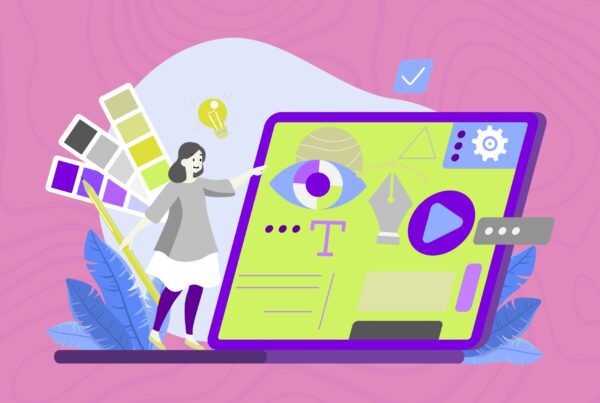By 2030, artificial intelligence (AI) is projected to add a staggering $15.7 trillion to the global economy. Its transformative potential spans countless industries, and businesses that embrace AI are often rewarded with enhanced efficiency, scalability, and profitability. But with AI’s vast potential, how do businesses identify the best opportunities? This article delves into the most profitable niches for AI-driven businesses and offers actionable insights for entrepreneurs, startups, and companies looking to succeed in this dynamic space.
Understanding the Growth of AI in Business
The adoption of AI has skyrocketed in the past decade, driven by groundbreaking technologies like natural language processing (NLP), machine learning (ML), and computer vision. According to McKinsey, industries like healthcare, retail, and finance have experienced significant AI penetration, with global AI investments exceeding $90 billion by 2023. The primary reasons behind this rise are AI’s ability to automate repetitive tasks, extract meaningful insights from data, and deliver superior customer experiences.
What Makes an AI Niche Profitable?
Not all industries benefit equally from AI technologies. To determine which niches are the most profitable, several key criteria are essential:
- Market Size and Demand: High-demand industries with large customer bases are ripe for AI integration.
- Scalability: AI thrives in contexts where solutions can be scaled to serve millions of users.
- Efficiency Gains: Industries with repetitive processes and significant inefficiencies can see substantial cost savings through automation.
- Compliance and Ethical Considerations: Regulatory hurdles and ethical implications must be manageable to ensure sustainable growth.
The Most Profitable Niches for AI-Driven Businesses
1. Healthcare and Biotech
The healthcare and biotech industries are undergoing a profound transformation, driven by the power of artificial intelligence (AI). As healthcare costs continue to rise globally, AI offers a promising solution to address critical challenges, such as early disease detection, personalized medicine, and drug discovery.
Key Applications:
- Personalized Medicine: AI-powered algorithms can analyze vast amounts of genetic data to identify individual patient needs and tailor treatment plans accordingly. This precision medicine approach can improve treatment outcomes and reduce side effects.
- Drug Discovery: AI accelerates drug discovery by identifying potential drug candidates, predicting their efficacy, and optimizing clinical trials. This can lead to faster development of new medications and therapies.
- Virtual Health Assistants: AI-powered chatbots and virtual assistants provide 24/7 patient support, answering questions, offering health advice, and monitoring symptoms. These virtual assistants can alleviate the burden on healthcare providers and improve patient satisfaction.
- Medical Imaging: AI-powered image analysis tools can detect diseases like cancer at earlier stages, enabling timely interventions and improving patient outcomes.
- Clinical Decision Support: AI-driven systems can provide clinicians with real-time insights and recommendations, helping them make informed decisions about patient care.
Successful AI-Driven Companies in Healthcare and Biotech:
- Tempus: This company uses AI to personalize cancer care by analyzing genomic data and medical records to identify the best treatment options for each patient.
- Google DeepMind: DeepMind’s AlphaFold has made significant strides in protein folding, a fundamental problem in biology. This breakthrough has implications for drug discovery and understanding of diseases.
2. E-commerce and Retail
AI is reshaping the retail landscape, enabling businesses to optimize their operations and deliver personalized shopping experiences. The competitive edge AI provides has made it a must-have in this sector.
Key Applications:
- Product Recommendations: AI-powered recommendation engines, similar to those employed by Amazon, analyze customer purchase history, browsing behavior, and other data points to suggest relevant products. This personalization enhances customer satisfaction and boosts sales.
- Inventory Management: Predictive analytics helps retailers forecast demand, optimize inventory levels, and reduce stockouts or overstocking. This leads to cost savings and improved customer satisfaction.
- Dynamic Pricing: AI algorithms can dynamically adjust prices based on factors such as competition, demand, and real-time market conditions. This enables retailers to maximize revenue and stay competitive.
- Chatbots and Virtual Assistants: AI-powered chatbots and virtual assistants provide 24/7 customer support, answer queries, and assist with purchases. This improves customer experience and reduces the burden on human agents.
- Fraud Detection: AI algorithms can identify fraudulent transactions and protect businesses from financial losses.
- Visual Search: AI-powered visual search tools allow customers to search for products using images, making it easier to find what they’re looking for.
Leading Examples of AI in E-commerce and Retail:
- Amazon: Amazon is a pioneer in AI-powered e-commerce, leveraging machine learning for product recommendations, inventory management, and personalized shopping experiences.
- Alibaba: This Chinese e-commerce giant uses AI to power its recommendation engines, chatbots, and fraud detection systems.
- Shopify: Shopify provides AI-powered tools to its merchants, including product recommendations, inventory management, and marketing automation.
E-commerce giants like Shopify and Alibaba are prime examples of companies leveraging AI to optimize customer experiences and streamline operations. With online shopping continuing its meteoric rise, this niche presents one of the highest ROIs for businesses adopting AI systems.
3. Fintech
The financial sector is one of the earliest adopters of AI, and with good reason: AI has transformed how financial services are accessed and delivered, unlocking new revenue streams.
Key Applications:
- Fraud Detection: AI-powered systems can analyze vast amounts of transaction data to identify patterns and anomalies, enabling real-time detection of fraudulent activities.
- Robo-Advisors: AI-driven robo-advisors offer automated investment advice, making it accessible to a wider range of individuals. These algorithms can analyze market trends, risk tolerance, and financial goals to provide personalized investment strategies.
- Risk Management: AI-powered predictive analytics can help financial institutions assess and manage risks more effectively. By analyzing historical data and identifying emerging trends, AI can help mitigate potential losses.
- Algorithmic Trading: AI algorithms can execute trades at high speed and with precision, taking advantage of market opportunities and minimizing risks.
- Loan Approval: AI-powered credit scoring models can assess creditworthiness more accurately and efficiently, enabling faster loan approval processes and expanding access to credit.
Successful AI-Driven Fintech Companies:
- Upstart: This fintech company uses AI to assess creditworthiness and provide loans to individuals with limited credit history.
- Betterment: Betterment is a robo-advisor that uses AI to provide personalized investment advice and automated portfolio management.
An example of innovation is Upstart, which uses AI for lending and credit scoring, focusing on underserved populations. Although challenges like cybersecurity threats exist, fintech remains a lucrative area for AI deployment.
Challenges and Opportunities:
While the potential of AI in fintech is immense, there are significant challenges to overcome:
- Cybersecurity Threats: As financial institutions become increasingly reliant on AI, they face growing cybersecurity risks. Robust security measures are essential to protect sensitive data and prevent cyberattacks.
- Regulatory Compliance: The financial industry is heavily regulated, and AI-powered systems must comply with various regulations.
- Ethical Considerations: AI algorithms can introduce biases, which can lead to unfair treatment of certain groups. It is crucial to develop AI systems that are fair and unbiased.
4. AI in Education (EdTech)
AI is revolutionizing the education sector, making learning more personalized, engaging, and accessible. Key applications include:
- Personalized Learning: AI-powered platforms can adapt to individual student needs, providing tailored learning experiences. This can help students learn at their own pace and improve their understanding of complex concepts.
- Intelligent Tutoring Systems: AI-powered virtual tutors can provide one-on-one instruction, answering questions, offering explanations, and providing feedback. This can be particularly beneficial for students who need additional support or have specific learning styles.
- Automated Grading: AI can automate the grading process, freeing up teachers’ time to focus on more meaningful tasks, such as providing personalized feedback and engaging in deeper discussions with students.
- Language Learning: AI-powered language learning apps like Duolingo use adaptive algorithms to tailor lessons to each user’s proficiency level, making language learning more efficient and enjoyable.
Successful Examples:
- Duolingo: This popular language learning app uses AI to personalize lessons and provide real-time feedback.
- Coursera: This online learning platform leverages AI to recommend relevant courses and track learner progress.
5. Autonomous Vehicles and Transportation
The transportation industry is undergoing a significant transformation, driven by the development of autonomous vehicle technology. Key applications include:
- Self-Driving Cars: Autonomous vehicles have the potential to revolutionize transportation by reducing accidents, improving traffic flow, and increasing accessibility. Companies like Tesla and Waymo are at the forefront of this technology.
- Autonomous Trucks: Self-driving trucks can improve efficiency and reduce costs in the logistics industry.
- Drone Delivery: AI-powered drones can be used to deliver packages and goods, especially in remote areas.
Challenges and Opportunities:
While the potential benefits of autonomous vehicles are significant, there are also challenges to overcome, such as safety concerns, regulatory hurdles, and infrastructure requirements. However, the long-term potential for this technology is enormous, with the potential to reshape the transportation industry.
6. AI in Cybersecurity
Cybersecurity is a critical concern in today’s digital age, and AI is playing a crucial role in protecting sensitive data and systems. Key applications include:
- Threat Detection: AI-powered systems can analyze vast amounts of data to identify and respond to cyber threats in real-time.
- Incident Response: AI can automate incident response processes, reducing the time it takes to contain and mitigate cyberattacks.
- Predictive Analytics: AI can predict future cyberattacks by analyzing historical data and identifying emerging trends.
Leading Cybersecurity Companies:
- CrowdStrike: A leading cybersecurity company that uses AI to detect and respond to cyber threats.
As cyber threats continue to evolve, AI-powered cybersecurity solutions will become increasingly important in protecting businesses and individuals from harm.
Analyzing What Makes These Niches Profitable
1. AI-Driven Customization: A Personalized Approach
- Enhanced Customer Experience: AI allows for hyper-personalized experiences, leading to higher customer satisfaction and loyalty.
- Increased Revenue: Tailored recommendations and product offerings can boost sales and revenue.
- Competitive Advantage: By offering customized solutions, businesses can differentiate themselves from competitors.
2. High Return on Investment (ROI): A Cost-Effective Solution
- Automation and Efficiency: AI can automate repetitive tasks, reducing labor costs and increasing productivity.
- Reduced Errors: AI-powered systems can minimize human error, leading to improved quality and reduced costs.
- Data-Driven Decision Making: AI algorithms can analyze large datasets to uncover valuable insights, helping businesses make informed decisions.
3. Growing Consumer Adoption:
- Increased Trust: As AI becomes more sophisticated and reliable, consumers are increasingly willing to adopt AI-powered solutions.
- Demand for Convenience: AI-powered solutions can streamline processes and make life easier for consumers.
- Acceptance of AI-Powered Products: Consumers are becoming more accustomed to interacting with AI-powered devices and services.
4. High Barriers to Entry: A Competitive Advantage
- Technical Expertise: Developing advanced AI solutions requires specialized skills and knowledge.
- Data Access: Access to large datasets is crucial for training AI models.
- Infrastructure Costs: Building and maintaining AI infrastructure can be expensive.
By understanding these factors, businesses can capitalize on the potential of AI to drive growth and profitability.
Final Thoughts and Recommendations
The potential of AI to revolutionize industries is undeniable. As we’ve explored, niches like healthcare, fintech, and e-commerce offer particularly promising avenues for AI-driven innovation.
Key Takeaways for Entrepreneurs:
- Identify a Niche: Focus on a specific niche where AI can provide significant value.
- Build a Strong Team: Assemble a team of experts with diverse skills in AI, data science, and business strategy.
- Prioritize Data: High-quality data is the fuel for AI. Invest in data collection, cleaning, and storage.
- Stay Updated: The AI landscape is constantly evolving. Stay informed about the latest trends and technologies.
- Ethical Considerations: Develop and deploy AI solutions responsibly, considering ethical implications and potential biases.
The Future of AI-Driven Business
The future of AI-driven business is bright, but it’s essential to approach it with a strategic mindset. By understanding the opportunities and challenges, businesses can position themselves for long-term success.
Which AI-driven niche excites you the most?
Personally, I’m fascinated by the potential of AI in healthcare. The ability to personalize treatments, accelerate drug discovery, and improve patient outcomes is truly inspiring.
What are your thoughts? Share your insights and let’s discuss the future of AI together!



